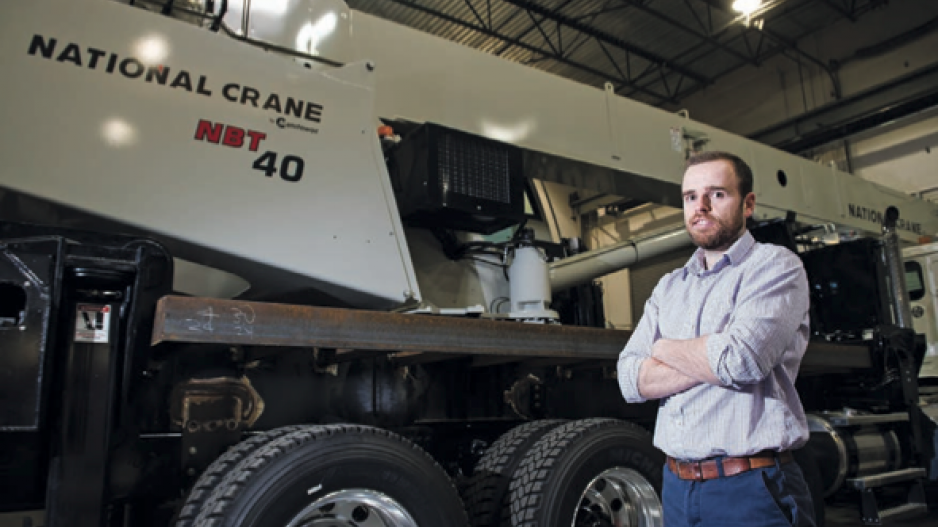For B.C.’s manufacturing sector, the recession could be over. Finally.
“Everyone assumed the recession ended in 2012 or 2013, but I think people are really seeing it ending in 2014,” said Marcus Ewert-Johns, vice-president of Canadian Manufacturers and Exporters BC.
“Orders are picking up, especially when the economy in the United States is improving.”
Statistics Canada numbers from September, the most recent data available, showed that B.C. manufacturers had their highest sales since 2007.
But companies in the Lower Mainland are more cautiously optimistic than jumping for joy. They stress that their biggest barrier to success now is being able to attract and keep skilled tradespeople.
Surrey-based Falcon Equipment, which builds custom cranes, trucks and rail vehicles, has grown rapidly in the past three years and plans to open a seventh office soon, marketing manager Andrew Grant told Business in Vancouver.
Much of that growth has been fuelled by the booming oil and gas sector in northern B.C. and Saskatchewan (Falcon does not have the dealer rights to sell to Alberta). But booming oil and gas is also providing the company with its biggest headache.
“It can be quite a struggle to find good quality workers who are willing to work at what we feel is a competitive price point,” Grant said. “We are competing with some really exorbitant wage offerings compared with what we can offer here.”
Dan Reader, president of Surrey’s Murray Latta Progressive Machinery, said his company has seen gradual improvement every year since the 2009-10 depths of the recession. The 95-year-old company, which makes custom machinery, is accustomed to the ups and downs of B.C.’s resource sector; like Falcon Equipment, much of its current business comes from Canada’s oil and gas sector.
“There’s definitely a skilled labour issue brewing as this baby boomer bulge starts to retire,” Reader said. “If any of these very large northern projects in northern B.C. and Alberta get moving, that could be an additional draw from the Lower Mainland. For those two reasons we see a storm brewing.”
Matjaz Paulic, owner of plastics moulding company PhMolds, said business is good, but his market has become more domestic since 2008. The U.S. customers he lost during the recession haven’t come back.
The lower Canadian dollar benefits industries like forestry, which use B.C. materials and sell their products internationally. But Grant, Reader and Paulic said their companies, which primarily supply the Canadian market, don’t see much of a benefit from a lower dollar because they buy their raw materials in U.S. dollars and sell their products in Canadian dollars.
@jenstden




